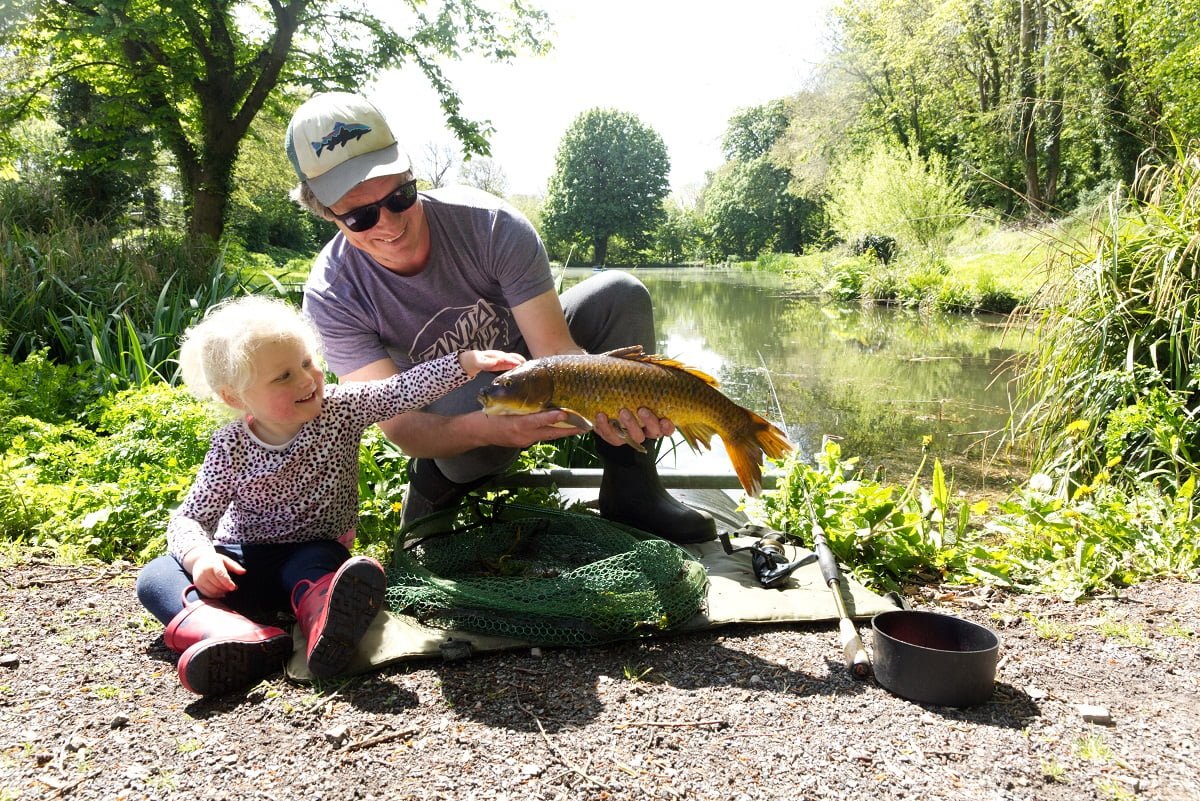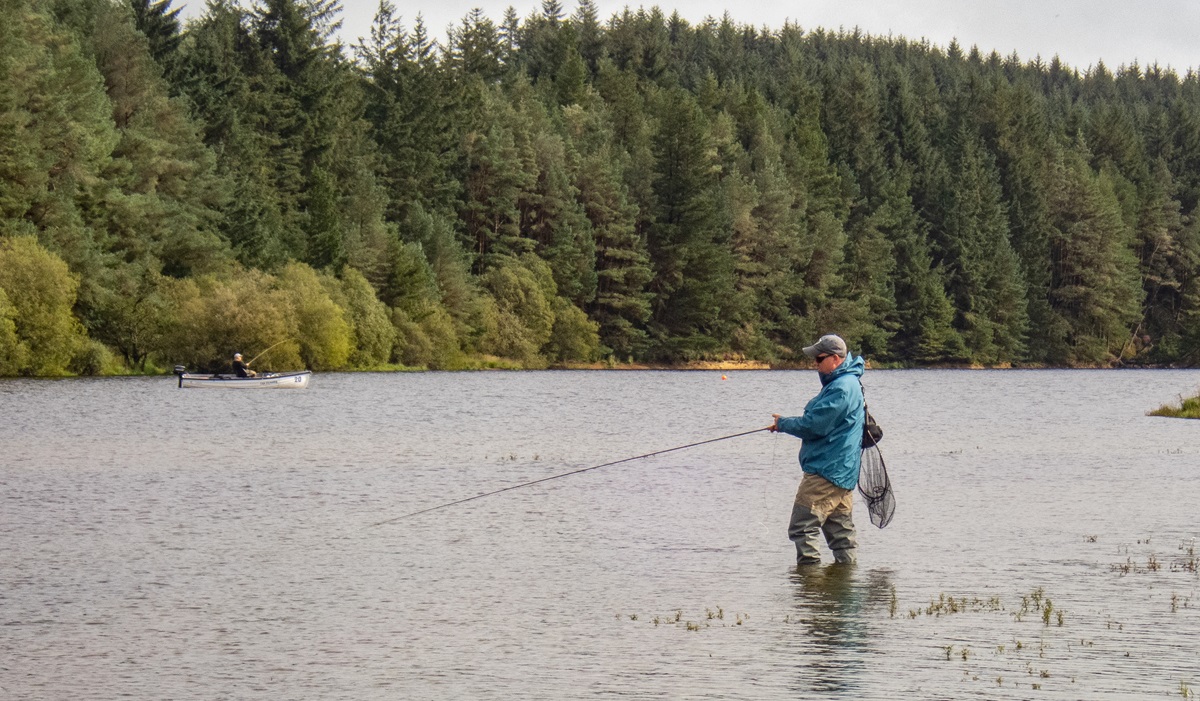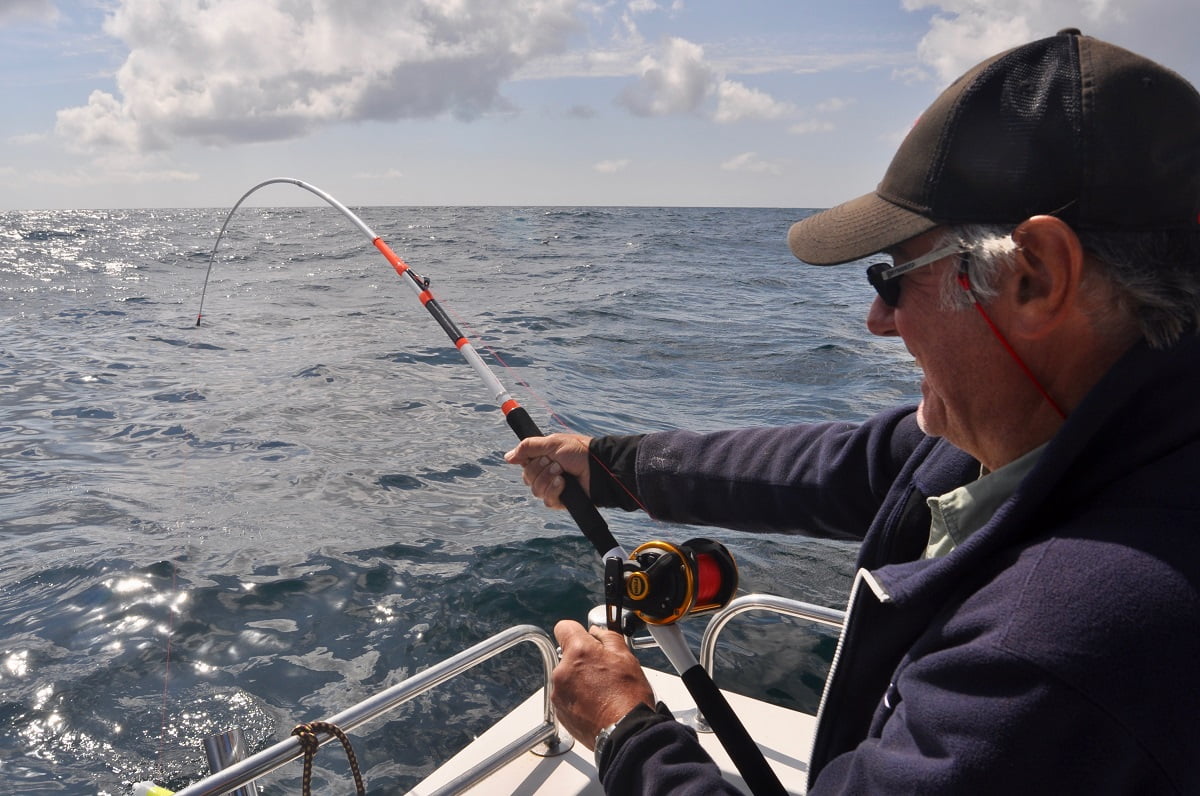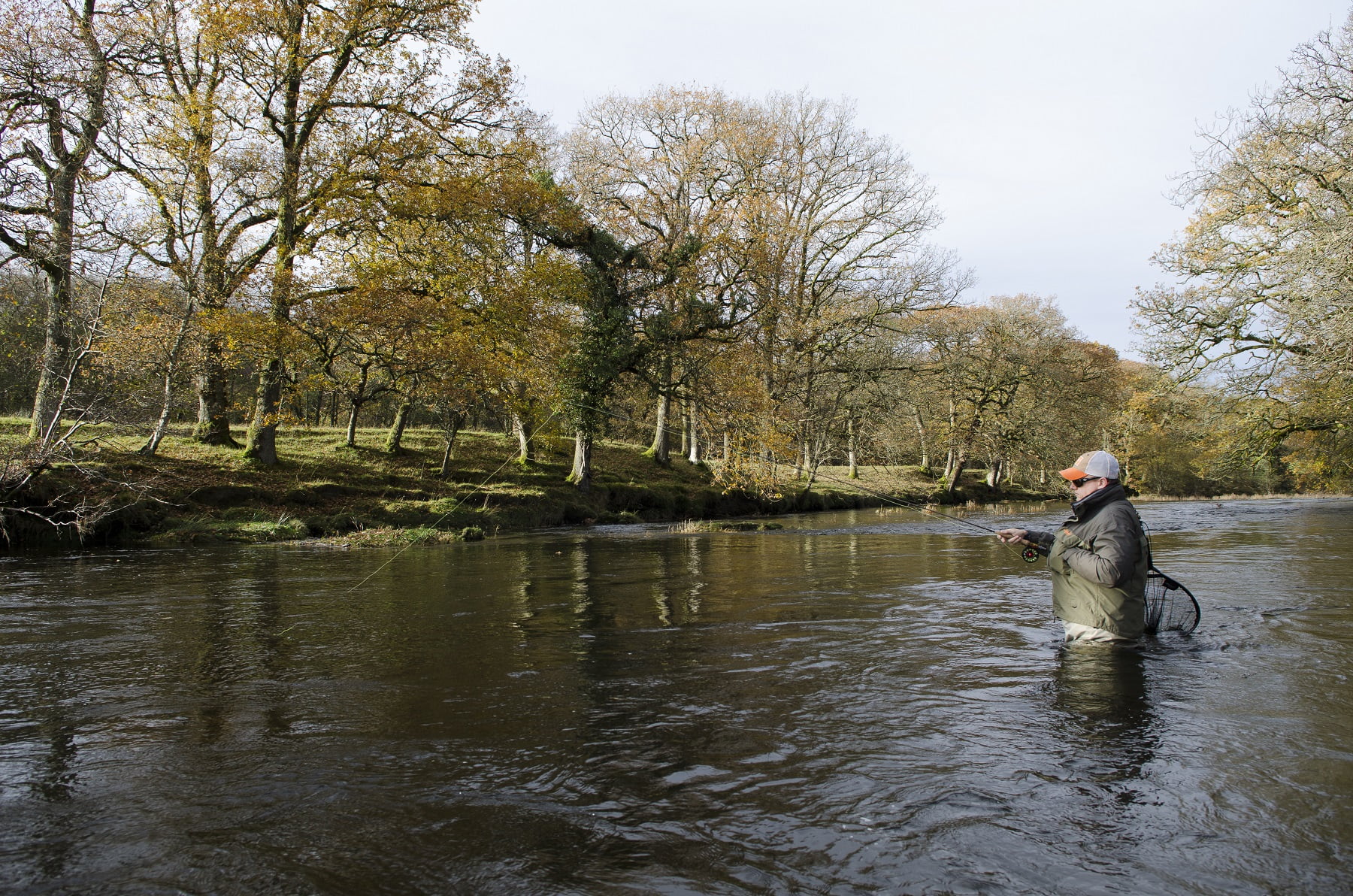How to Fish! With Will Millard
So, you want to give coarse fishing a go but don’t know where to start? Great! You will not regret it, and this blog should help get you well on your way to the bank, but I warn you now: the day may come where you realise fishing has taken over your every waking thought, and I guarantee you won’t ever be able to walk past a patch of water without stopping to look for a fish first!
Okay, so the pathway into starting fishing is a little unusual when held up against all the other sports and hobbies you might’ve chanced your arm with in the past. For most normal past-times you’ll probably remember some formal early lessons, a clearly structured and progressive improvement in your skills, a tutor or a teacher, maybe the passing of grades or the acquisition of some badges, a coloured belt, or even a trophy or medal for the cabinet. For so many of us anglers though, when we throw our mind back to exactly how we got started, it can all feel a little hazy and meandering.
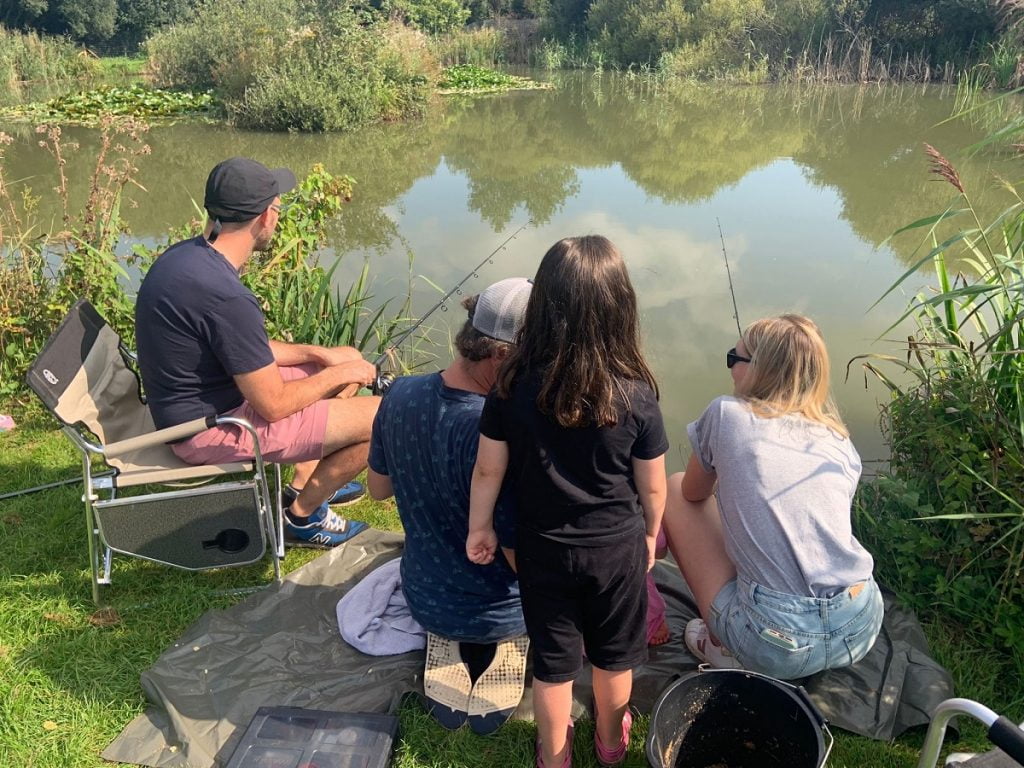
For me, I know it was my Grandad who first taught me how to fish, but I can’t remember exactly what it was I learnt. What I can remember though, as if it were yesterday, was that truly electrifying moment when my float dipped and I hooked a fish for the very first time.
Full disclosure: I was so excited I struck too hard and sent that first fish flying deep into a field of sugar-beet some 20 metres behind me. Forgive me: I was only four. But not five minutes later, that float dipped again and this time I did land it properly.
Over thirty years of angling have since passed, but that moment and memory, is one of such awesome joy that I only wish I could bottle it up and keep it with me forever; mostly to show non-anglers that this, this, is why we anglers pour so much of our own time into chasing fish.
Let’s address the elephant in the room though: you are curious about fishing, but you might also be worrying that it all looks a little cold, boring, smelly, slimy, blokey, and lonely; Right? Wrong!
It can be really fun and very active, it can be shared with friends and family (teaching my children, and my friends children, to fish, has given me some of my best memories as an adult, and some of my best friends have come through fishing too) it can be really relaxing (time spent by the water’s edge is a proven natural antidepressant and is now being prescribed on the NHS, but fishing is a deeply mindful and meditative sport in itself) and it is really inclusive: there are no barriers on age, background, disability, or gender: 1 in 4 rod licenses sold are to women and many venues have been carefully designed to accommodate anglers with mobility issues.
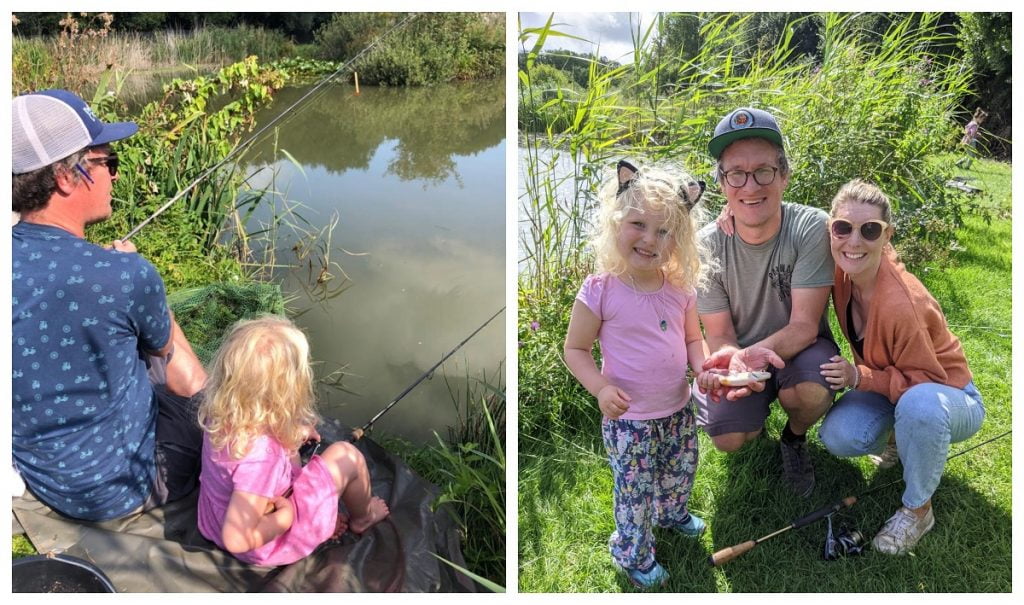
All you really need is a little bit of kit and a nudge in the right direction. Yes, admittedly, there are anglers among us that fish till our fingers almost fall off (and use the smelliest baits imaginable) but it honestly does not need to be that way. Most anglers fish on only the finest days and you really don’t need to use baits that would raise the dead; of course, fish can be slimy, but trust me: you won’t mind once you’ve started catching them!
Right, without further ado, here are my top tips for getting started on your angling journey:
1. Start small and focus on fun!
One of the things that can be confusing for a lot of people who are new to fishing, is just how incredibly diverse the sport is. You’ve got game and trout anglers casting their flies into moving water with metronomic fluidity at one end of the scale, then, at the other, you’ve got sea anglers casting huge heavy weights into the saltwater with broomstick-like rods. In the middle you have the coarse anglers (like me) huddled around the ponds and rivers, the carp anglers sat behind their bite alarms, the match anglers all in a row, and the light lure gang covering every metre of canal with lures that wouldn’t look out of place on a Christmas tree.
So, exactly where do you begin?
For me, as someone who has tried most of the angling disciplines at some point (with skills firmly settled somewhere between below-average to above-poor) I’d say just focus on the fun and keep it super simple when you start out.
A basic float fishing kit is all you really need: a rod and reel (or a ‘whip’ style pole) some hooks, lead shot, floats, a tub of maggots, net, mat, and disgorger. Once you’ve banked a few fish, and got a feel for it, then you can easily branch out from that point, but the basic fundamentals of setting up, casting, fish-finding, feeding, fish-care, unhooking, and safely releasing, will put you in really good stead going forward.
You are not going to be hauling Jeremy Wade’s River Monsters on your first outing. You will definitely have tangles and make mistakes (I’ve been fishing for 35 years and still do!). You will probably lose a fair few fish and miss a lot of bites too, but all the best stuff in life takes a little bit of work, and learning through trial and error is very much part of our sport.
Beginners fishing used to really focus around finding big shoals of smaller silver fish in our rivers and, especially, the canals. Unfortunately, for a variety of reasons, it isn’t as easy to get started in those venues as it once was, but there are still plenty of other places to go to get a bite or two. I’ve listed some decent beginners’ venues in Wales at the bottom of this blog, but the key is to go to places which are safe to access and have small fish in abundance
2. Join a club!
I can’t overstate how important joining a local fishing club is when you are just getting started, especially if you have no-one in your immediate friends or family who can teach you.
Fishing clubs will often have ‘how to fish’ days and junior days for the young – run by dedicated volunteers with a wealth of experience – plus, as part of your membership fee you’ll almost certainly gain access to at least one good mixed fishery for beginners.
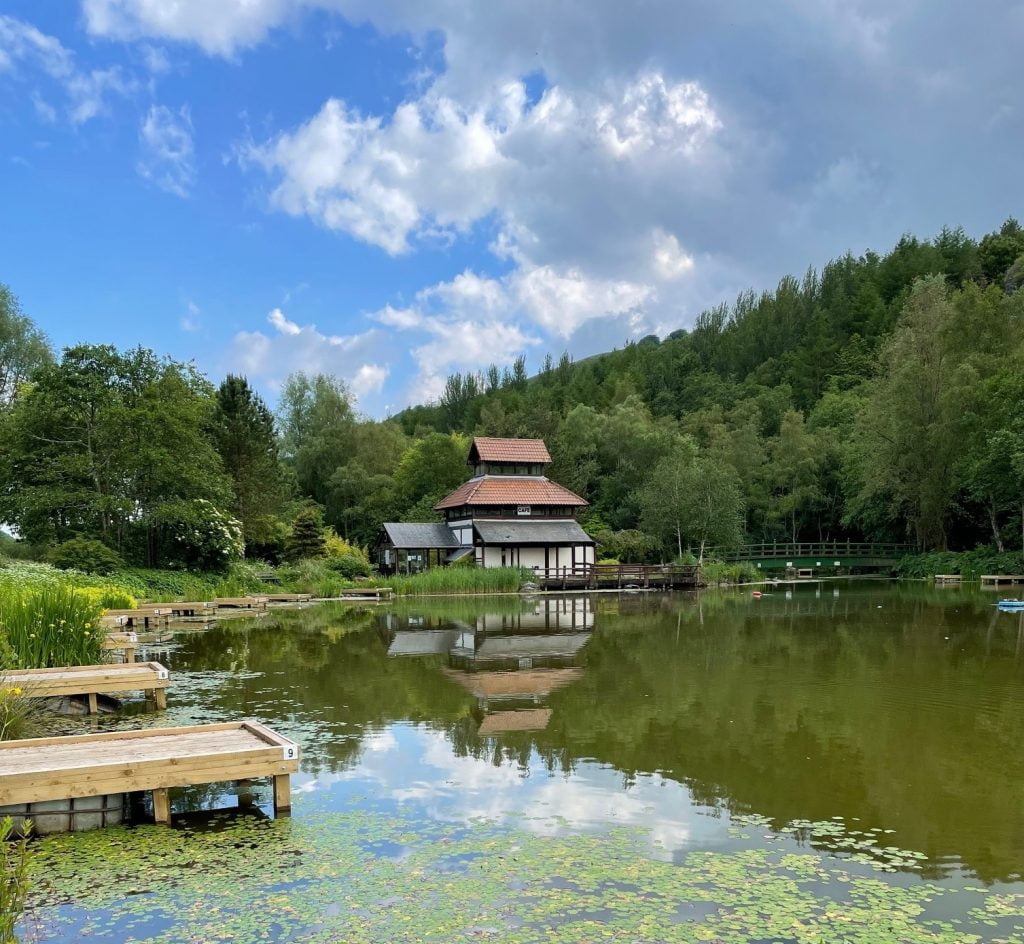
A quick internet search or browse through the Fishing In Wales website will help you find your local club, and most are very active on social media too. Failing that, don’t overlook the value of hiring the services of a fishing guide/tutor for a day or two. Many will offer a bespoke programme for beginners, and a bit of one-to-one tuition will give you a proper head start.
3. Go to your local tackle shop.
There are so many options for buying tackle online, but I highly recommend beginners head to their local tackle shop. Firstly, a lot of the ‘beginners’ packages online might be cheap, but they are often very poor quality and usually miss out the fundamentals, like a decent disgorger for unhooking fish, a landing net and/or a mat.
In the tackle shop, it is absolutely in their best interests to ensure that you get both good value and a high quality product with everything you need, and secondly (perhaps even more importantly) a good tackle shop should also show you how to set-up properly and give you loads of advice on getting started and where to go.
Angling is as much a sport of the fish you catch, as it is one of the people you’ll meet. I still love heading to my friendly local tackle shop for a chat, and it’s a great place to meet other anglers too; none of that will ever come your way shopping exclusively on Amazon; however, I also fully recognise that times are very tight for a lot of us. There are some amazing organisations in Wales that will offer free tackle and advice for those struggling to afford to get started in fishing. Check out ‘The Angling Initiative’ on Facebook, which offers free beginners kits, particularly for young people
4. Take a friend!
Learning together is always a lot more fun than going on your own. You can share the triumphs and disasters, plus it is a lot safer too. If you want to take a family member or partner, most clubs will do family tickets.
4. Buy your rod license.
This can seem a little confusing at first, but here in Wales (and in the wider UK), everyone over 13 who fishes in freshwater needs an annual rod license from NRW (or the EA in England). Don’t be conned by all the dodgy websites trying to make a few quid in admin fees, you can get it direct from the gov.uk website and it is relatively inexpensive. Under 13s do not need a rod license, and it is free on application for those aged 13 to 16.

Once you’ve got that, you must check who owns the fishing rights before you start fishing in any patch of water. Again, seek advice from local clubs or your local tackle shop, but essentially, you need both your rod license and then a mix of either a club book, a day ticket, or the landowner’s permission before you start. If you’re lucky, you might land on water that is free to fish – just don’t make the assumption that it is without checking first!
There is a super-abundance of beginners’ lakes and ponds run on a day ticket basis, I’ll put a few in the list below this blog, but another thing worth thinking about is the ‘closed season’. I won’t confuse you further, but essentially there are periods, on rivers especially, where there is ‘no fishing’, or ‘no fishing’ for certain species, for various times in the year. Again, your local angling club and tackle shop will be all over the rules for your local area, so just ask! Alternatively a list of seasons for various species can be found here.
6. Books and online resources.
Gone are the days that we were all reliant on the same handful of books for beginners and John Wilson’s fishing adventures on late night TV. Today, there are so many resources online for anglers who are starting out, it can even feel a bit like you ‘can’t see the wood for all the trees’.
As mentioned, you still can’t really beat face-to-face advice and tuition, but there are some great YouTube channels out there. One of the best is ‘Carl and Alex’, who have a fishing tutorials channel that really breaks it all down into the very simplest of steps.
The Angling Trust have endorsed a really visual book too: ‘Get Fishing’ by Allan Sefton, which I would recommend, and the long running ‘Improve Your Coarse Fishing Magazine’ is well worth picking up for more of the basics.
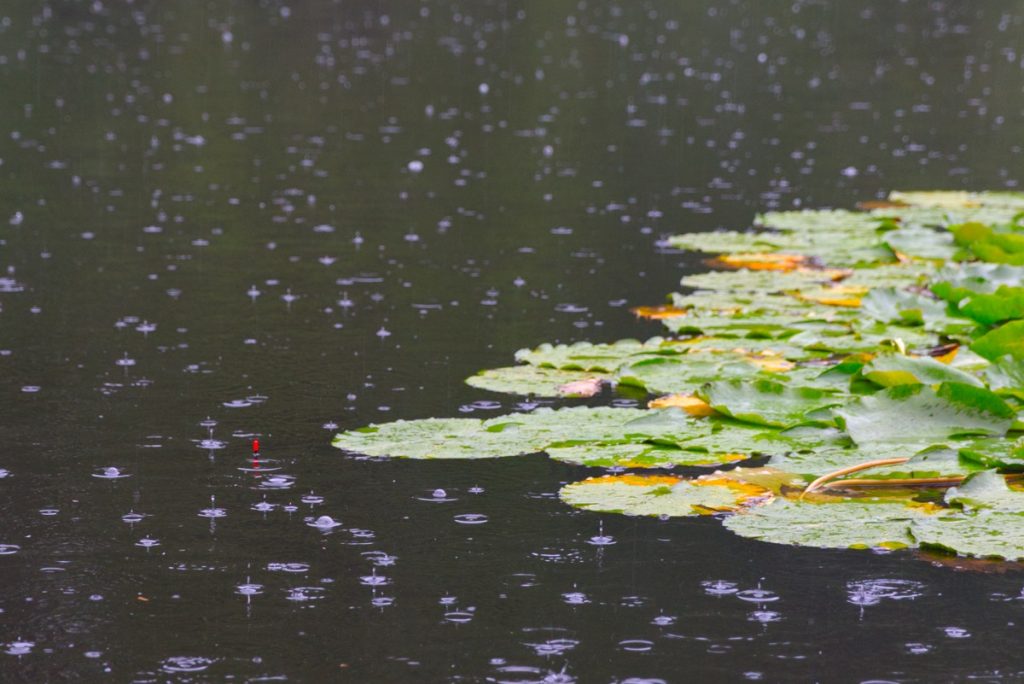
A few venues for beginners in Wales
For plenty of bites and ease of access for all try:
Hazel Court ponds – Near Cowbridge, Jim’s Pond is full of silverfish and guaranteed action.
Cefn Mably Lakes – East of Cardiff, The Willow Pond is a great spot for lots of action from F1s.
White Springs – Between Swansea and Llanelli, their match and pleasure ponds can often be a ‘fish a chuck’.
Lyn y Gors in Anglesey – this North Walian lake has a bespoke beginner’s pond. Full of fish including small carp, to get the pulse racing without risking snap-offs!
Festival Park Angling – Situated in Ebbw Vale, this family friendly angling club warmly welcomes beginners at their beautiful well stocked fishery, which has everything from koi carp to barbel.
Ian Heaps Fishing Resort – The tackle hire facility here will allow you to grab a simple set-up and sample the sport without too much outlay. Especially useful if holidaying in Pembrokeshire with a car already rammed full of stuff for the family!
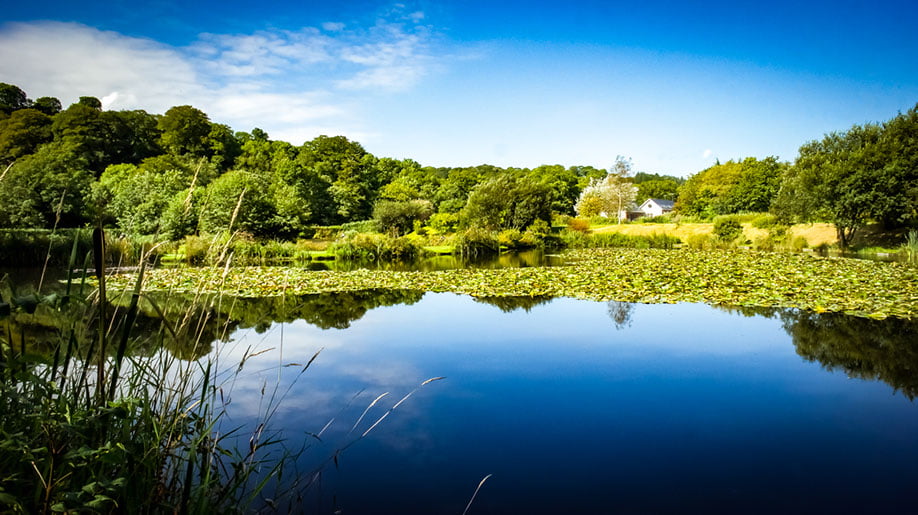
There are many more venues that are perfect for beginners to try their luck in Wales; check out the ‘Find fishing‘ map, which features every single place to go fishing in Wales.
And If you need more tips and advice on getting started, be sure to check out our extensive ‘Beginners guide‘ pages.
Words & Images: Will Millard
Additional images: Fishing In Wales website
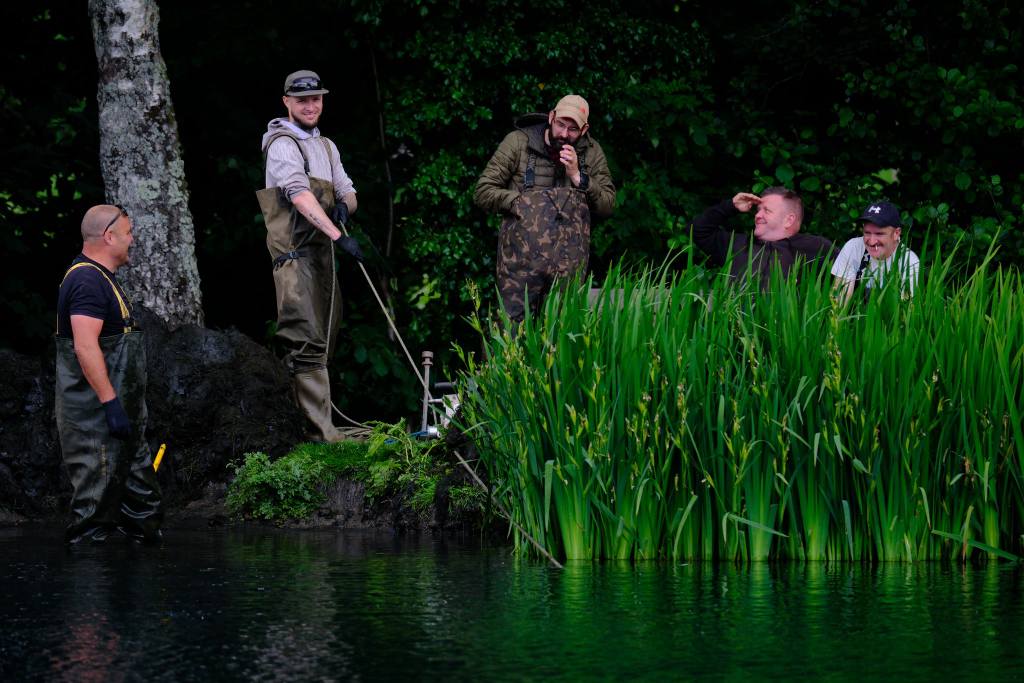
Fishing Clubs of Wales: Crow Valley Angling VIDEO
We join the Crow Valley Anglers on the Cwmbran boating lake, where we learn about the venue and the…
Read More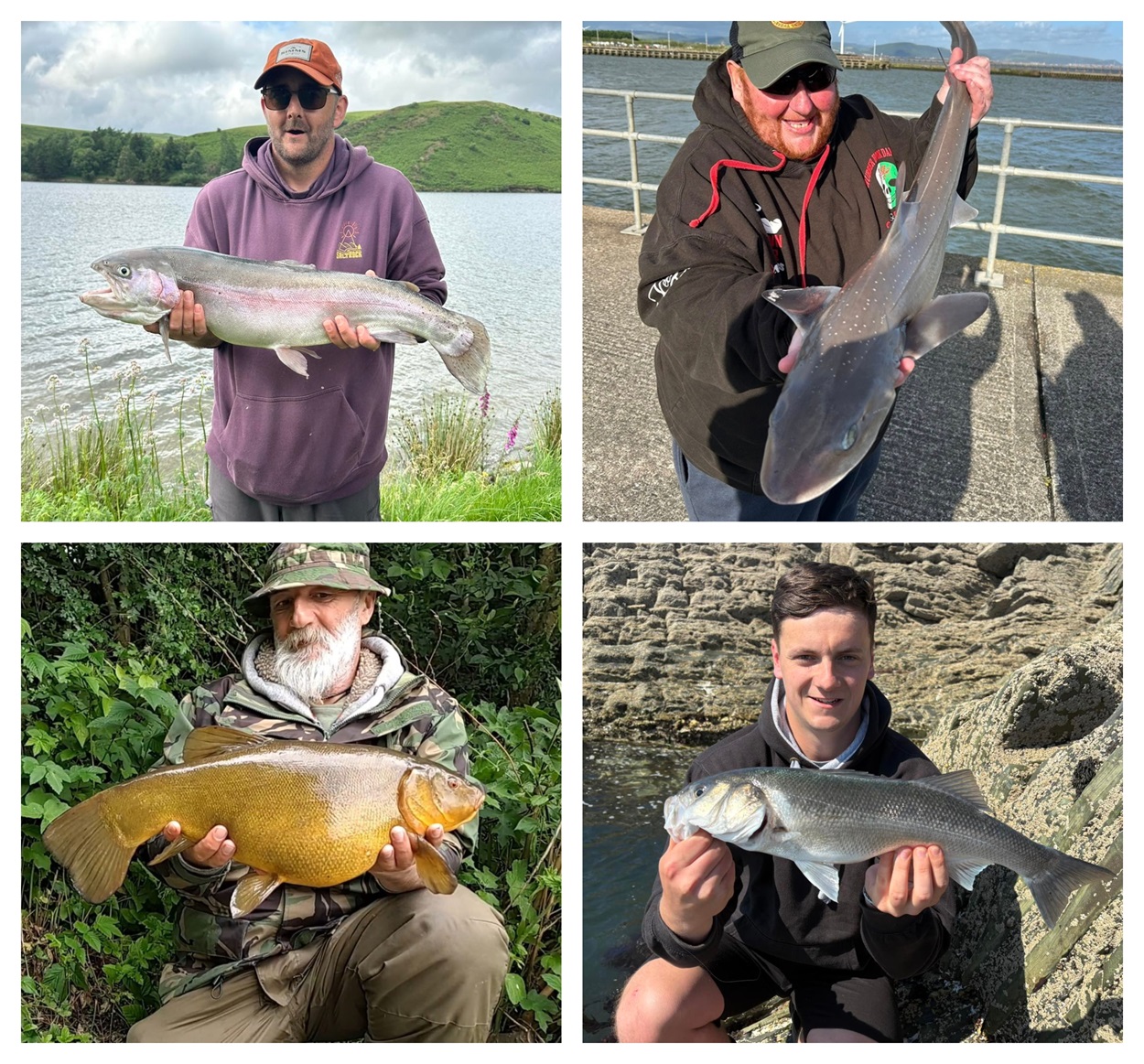
End of June 2025 Fishing Update – Game, Coarse and Sea
As we head into summer, anglers across Wales are enjoying a diverse range of fishing opportunities. While warmer river conditions…
Read More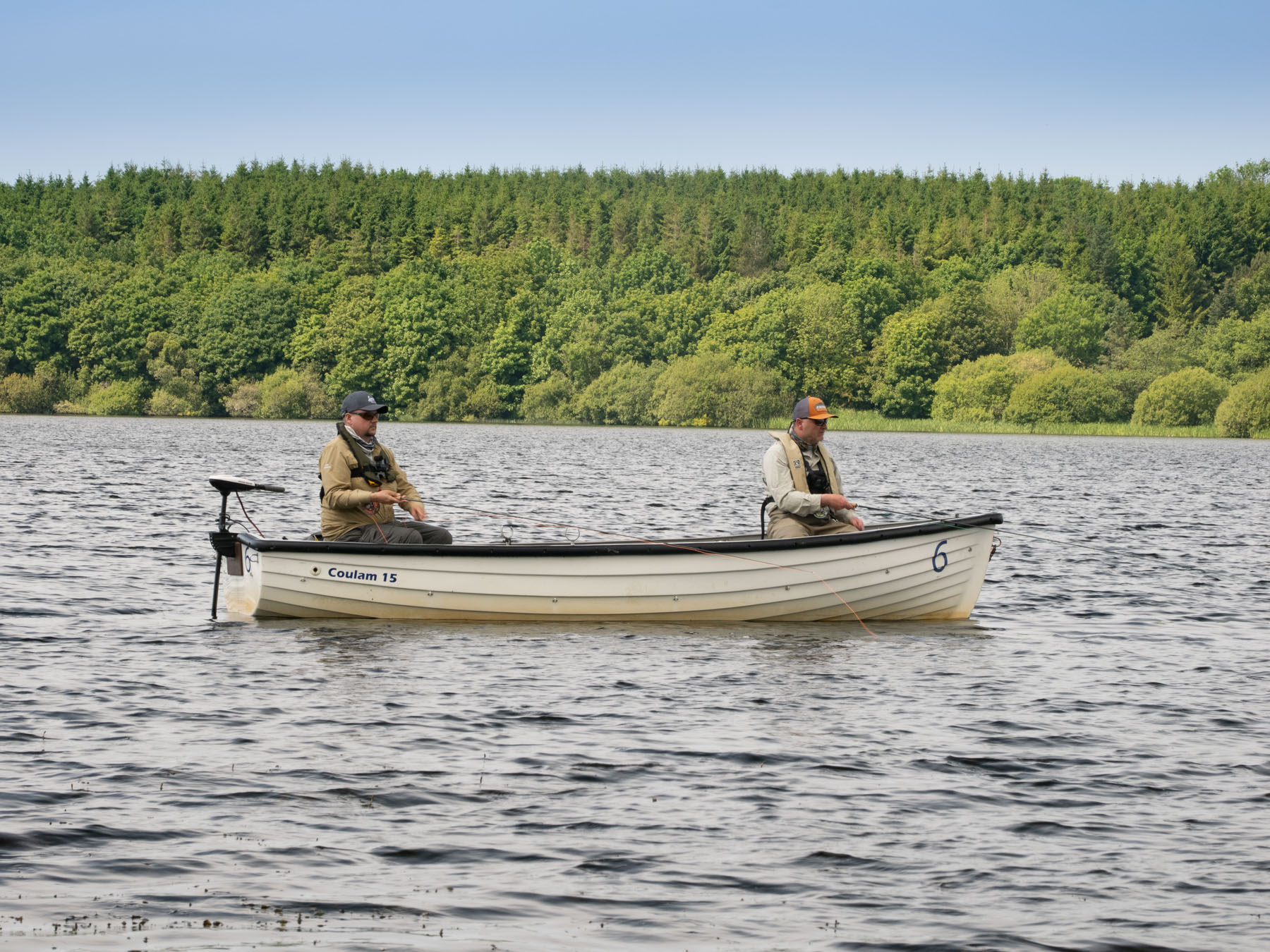
Boat Fishing on Cefni Reservoir Anglesey VIDEO
We join Ceri Thomas, Alan ‘Parf’ Parfitt and Lyn Davies on the stunning Cefni Reservoir on Anglesey for a fun…
Read More
